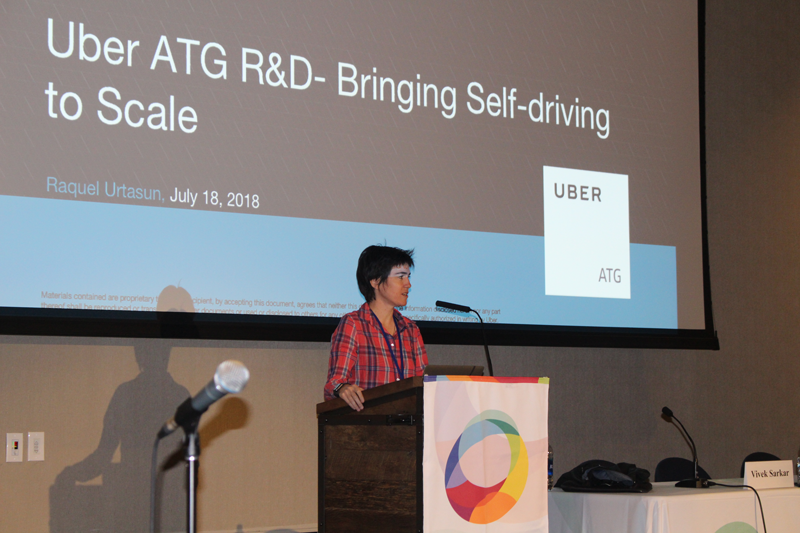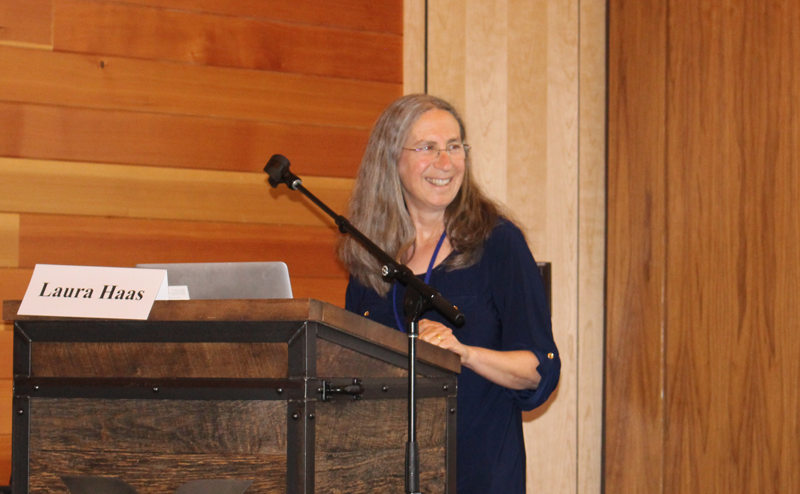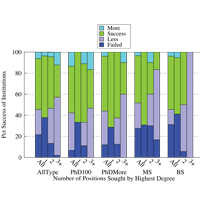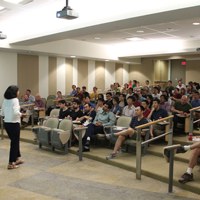Highlights from the 2018 CRA Conference at Snowbird
From July 16-18, the Computing Research Association (CRA) held its biennial Conference at Snowbird with more than 300 people in attendance. Every two years, the chairs of computing and information departments, as well as the leaders of government and industrial laboratories from across the country and the world, gather in Snowbird, Utah, to network and discuss common issues concerning the future of the field.
The event began with a networking reception, award presentations and plenary talk by former CRA Board Chair and Turing award winner David Patterson. Over the following two days, outstanding speakers and panels addressed issues surrounding three themes.

Raquel Urtasun (University of Toronto/Uber Advanced Technologies Group) during the session on “A Future with Affordable Self-driving Vehicles.”
The Ubiquity of AI
In her plenary talk “A Future with Affordable Self-driving Vehicles,” Raquel Urtasun (University of Toronto/Uber Advanced Technologies Group [ATG]) showcased the latest advancements made by Uber ATG’s research lab in the quest toward self-driving vehicles and explained her vision for how both industry and academia could come together to form the next generation of students. A subsequent parallel session, “Self-driving Cars: When Will They Become Mainstream,” examined the key technical and societal challenges.
During the parallel session “Augmenting, Not Replacing, People,” panelists explored areas where AI and people work together to improve what we do from healthcare to education to training, and on Tuesday evening, the CCC organized two thought-provoking after-dinner talks focused on “Online Disinformation During Crisis Events” and “Machine Learning for Science.”

Carla Brodley (Northeastern University) moderates a panel of academic and industry experts on diversity in leadership.
Diversity in Computing Leadership
A plenary talk on “Diversity in Leadership” kicked off the first full day of the conference. Carla Brodley (Northeastern University) moderated a panel of academic and industry experts who examined the challenges and opportunities in retaining diverse employees. The panelists emphasized that diversity must be a priority for progress to occur. In a following parallel session, “Increasing Diversity in Computing is Easier Than You Think: Some Small Steps that Make a Big Difference,” led by Mary Hall (University of Utah), a panel shared information on best practices. Themes included creating a community and welcoming environment for students from underrepresented groups; encouraging faculty to engage in service activities that support the mission of broadening participation; and recognizing that diversity also includes disabilities. In “How to Stop Driving Women Out of Computing — What Happens in Your Backyard Matters!” participants explored three areas: certain issues that are driving women out of computing; harassment; and bias in research evaluation.

Laura Haas (University of Massachusetts-Amherst) leads the Booming Faculty session.
Timely Topics for Computing and Information Departments
Several parallel tracks dove into community issues. The session on “Department Rankings” looked at three prominent efforts: Microsoft Academic, csmetrics.org, and csrankings.org. “Booming Faculty: Opportunities and Challenges,” led by Laura Hass (University of Massachusetts-Amherst), explored one of the consequences of booming student enrollments as many departments have been scrambling to rapidly grow their faculty. In “New Models for Industrial Research in CS,” panelists shared their thoughts on how academics can better connect with industry. In “Making a Federal Case for Computing,” CRA’s Peter Harsha helped paint a clear picture of the current state of federal support for computing and science funding, and CRA’s role in the process.
Informal Networking
In addition to all the formal sessions, Tuesday afternoon was dedicated to encouraging networking among the participants. Some attendees explored the mountain near Snowbird on both organized and unofficial hikes, while others participated in planned book discussions. At the event, attendees used the Whova mobile app to connect with each other, view the agenda, share photos, and more. CRA Conference at Snowbird participants used the #CRASnowbird hashtag to engage on Twitter. The CRA staff also captured excellent photos of the event. Click here to view the CRA photostream on Flickr.
Speaker Slides and the 2020 Conference
The conference agenda is posted online here and speaker slides are highlighted in blue if available. Thanks to everyone who contributed to making this event a success! We are looking forward to the next CRA Conference at Snowbird. Mark your calendars for July 21-23, 2020.









